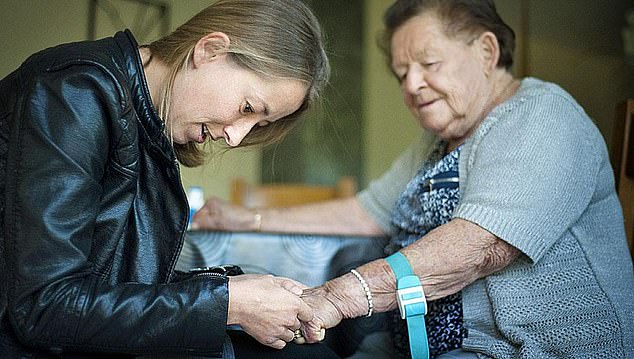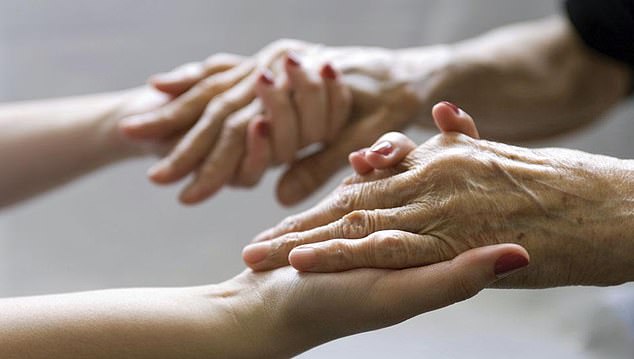‘Sandwich caregivers’ who care for their own parents and children suffer significant declines in health, study shows
Caring for aging parents and children simultaneously takes a ‘significant’ toll on health, a study has found.
According to research from University College London, being a ‘carer sandwich’ with both older and younger dependents causes a decline in mental and physical wellbeing.
An estimated 1.3 million people in Britain juggle the responsibilities of caring for older relatives while raising children under the age of 16, with this number increasing as people live longer.
Researchers analyzed the health of 2,000 caregivers and 2,000 other adults from the UK Household Longitudinal Study between 2009 and 2020.
They followed both groups for nine years, using questionnaires focused on the period before, during and after they became informal caregivers.
They then used statistical models to predict health changes and compared the two groups.
The researchers looked at how health changed during the transition to sandwich care and tested whether these changes were different between the two groups.
They also examined whether the number of hours of caregiving and gender influenced these health changes.
According to research from University College London, being a ‘sandwich caregiver’ with both older and younger dependents causes a decline in mental and physical well-being (stock photo)

Researchers analyzed the health of 2,000 caregivers and 2,000 other adults from the UK Household Longitudinal Study between 2009 and 2020 (stock photo)

The researchers looked at how health changed during the transition to sandwich care and tested whether these changes were different between the two groups (stock photo)
Mental health was measured using a questionnaire asking questions such as whether the parents had recently had problems concentrating, sleeping or feeling under stress.
Meanwhile, a physical questionnaire covered several areas such as general health, mobility, body pain and limitations in daily tasks due to physical problems.
The researchers found that parents who became caregivers experienced significant declines in their mental health – especially those who spent more than 20 hours per week on caregiving, and this continued for years.
There was also a deterioration in their physical health during this transition compared to non-sandwich caregivers, according to the findings published in Public Health.
Dr. Baowen Xue, lead author from UCL Epidemiology and Health Care, said the study highlights the significant mental and physical health challenges faced by sandwich caregivers.
“These individuals, balancing the demands of caring for both their children and their aging parents, often experience a decline in their well-being,” she said.
Dr. Xue added: ‘The study underlines the need for society to recognize and support the unique challenges that informal caregivers face.
‘Providing targeted support and resources, such as access to respite care and workplace flexibility, is crucial to help maintain their health and wellbeing, especially for those providing intensive care.’
